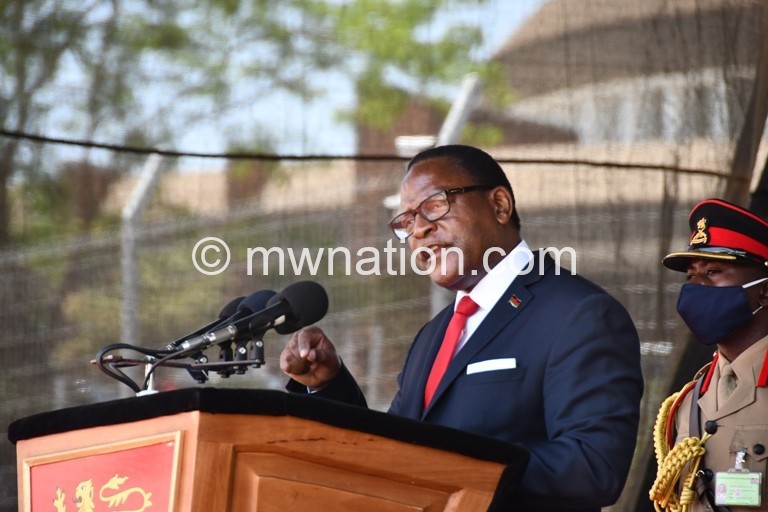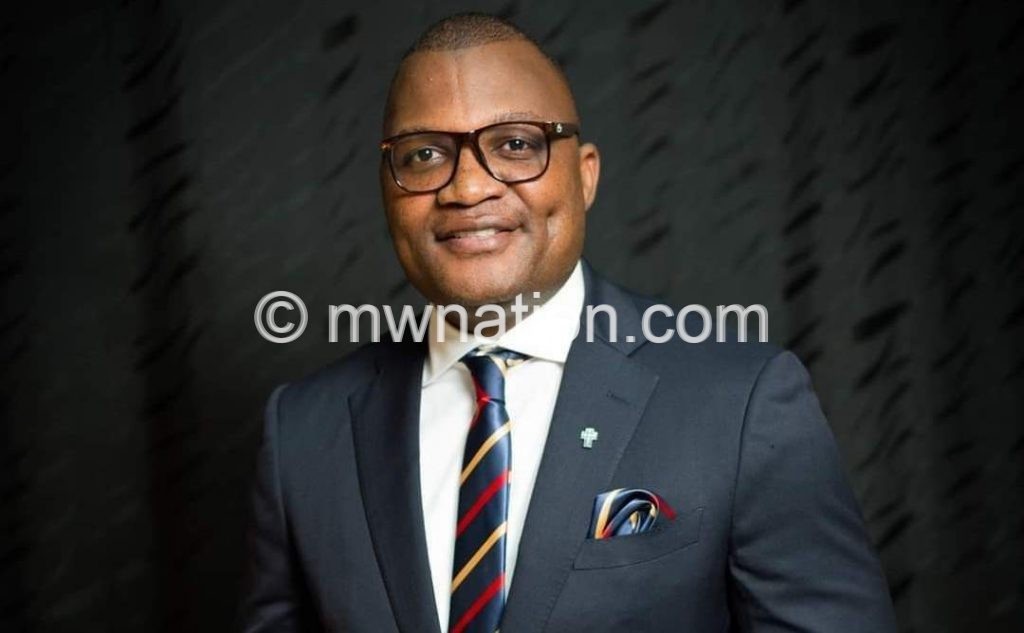Covid-19 mars cabinet review
December 10 2020, which President Lazarus Chakwera set to review his Cabinet and boot out nonperforming members, is far gone and State House has attributed this to the Covid-19 pandemic.
Presidential press secretary Brian Banda in an interview yesterday, while admitting that the five-month period expired early last month, said the President did not mean he was to do the review immediately after the expiry of the stated period.

He said what the President meant was that after the five-month period, he would start the review process.
Said Banda: “I can assure you, the President is undertaking this process, after all, the powers to fire or hire new members of the Cabinet rests in the President.
“But you know there were pillars he was to use to execute this review process, but we have had the Covid-19 pandemic which has disrupted most activities. Some ministers may not have accomplished what they had planned, and for this, it may have been very difficult for the President to assess them.”

Immediately the five months expired in December, the State House said the President was committed to doing what he promised Malawians when he appointed the controversial Cabinet.
The President made the pledge following a public outcry on the composition of his first 31-member Cabinet which he appointed on July 9 2020.
Said Chakwera: “You each have five months to produce results that will give Malawians confidence that change has come. At the end of that period, you will each give a report to Malawians publicly on your progress in each of the key performance indicators that I will give you.”
The President further stated that at the start of 2021, he would shortlist for inclusion in his new Cabinet those whose performance he found satisfactory.

Said Chakwera when swearing-in the Cabinet ministers on July 10 2020: “I want you to hear me and to hear me clearly…You each have five months to produce results that will give Malawians confidence that change has come.
“Should you prove the sceptics right by being lazy, abusive, wasteful, arrogant, extravagant, divisive and corrupt, I will not hesitate to have you replaced.”
When he was asked about the Cabinet review at a Weekly Presidential Briefing in Blantyre in December, Banda said: “The modalities are well placed…according to the President, all nonperforming ministers will be replaced but we don’t know when. It’s the President’s prerogative and I cannot say when the review will be done.
“So, let us wait. When he is ready, he will review his Cabinet and those that have not performed will be left out and probably new ones hired.”
Meanwhile,a human resource management expert Buxton Kayuni, who is also president of Employers Association of Malawi (Ecam), has said an assessment of Cabinet ministers was possible as each ministry had a policy with set priorities under their implementation plans.
In a written response to a questionnaire yesterday, he said it would have been ideal for Office of the President and Cabinet (OPC) to come up with a system for setting objectives and monitoring the implementation for the five-month period, saying in the absence of that, each ministry as a custodian of policy, would tick successes against its implementation matrix.
Said Kayuni: “Secondly, the [reform] meetings the Vice-President [Saulos Chilima] held with different ministries ought to have been the starting point in terms of key performance indicators.
“Plans and their results or challenges must be monitored and evaluated. I am sure the government has performance contracts with its officials and these are the starting points.”
Asked if the appointing authority should have agreed with the appointed Cabinet members on deliverables, he said the appointment alone was sufficient as a performance agreement.
The people management expert said the appointing authority may wish to consider entering into a deliverables agreement when the next Cabinet is assembled, taking into account that the current Cabinet was transitional.
Explained Kayuni: “So, perhaps agreements of this nature can be drawn for those that are successful in the past five months. Once again, in any implementation matrix in an institution, there are priorities. Such priorities also have time spans from short, medium to long-term. The ministers would have been able to assess what would be their quick and impactful gains.”
On his part, political analyst George Phiri from the University of Livingstonia cautioned Chakwera against taking Malawians for granted by making promises he could not fulfil.
He said: “Five months should mean five months. Malawians want to see the President’s promises bearing fruit. It is obvious some ministers have underperformed and they must be fired as per his promise.”
During the swearing-in of his Cabinet, Chakwera, who is also leader of Malawi Congress Party, was compelled to say he had appointed a transitional Cabinet after he received a backlash for appointing family members, perceived incompetent people who found their way because they allegedly funded the campaign, forgoing gender and regional balance as well as the restructuring of some key ministries.
A day after the Cabinet appointment, Human Rights Defenders Coalition met Chakwera and asked him to, among others, reconstitute his Cabinet to meet the aspirations of the people.
In an interview with BBC’s Focus on Africa after the appointment, the President said he had taken note of the expressed worries, including those from a meeting he held with civil society groups yesterday.
He said: “When I came up with the list of names, marital status was not even an issue, religion was not even an issue and these other issues that people are raising were never considered. We just wanted to look at merit.
“I will be addressing the nation tomorrow (today) and I will pretty much tackle everything because I am a listening President. As a servant I want to do exactly that,”
Reacting to the appointments at the time, governance expert Henry Chingaipe described the Cabinet as a crisis of expectations, saying it did not resonate with the expectations of a majority of Malawians who felt it was less inspiring in view of the governance and development agenda that the Tonse Alliance had set.
Most African countries are looking up to Rwanda as a model in as far as management of contracts between that country’s President Paul Kagame and government officials is done.
Each year, according to published articles on the Internet, performance contracts are signed between the president of Rwanda and local government institutions and line ministries, binding respective institutions to set targets.





